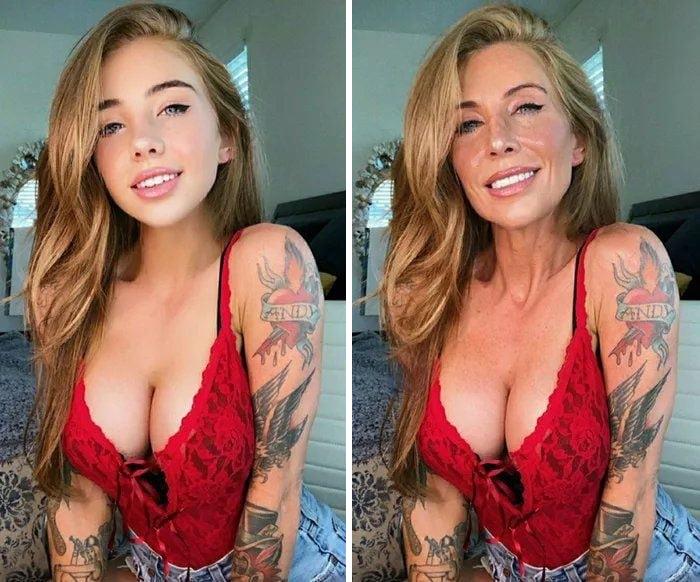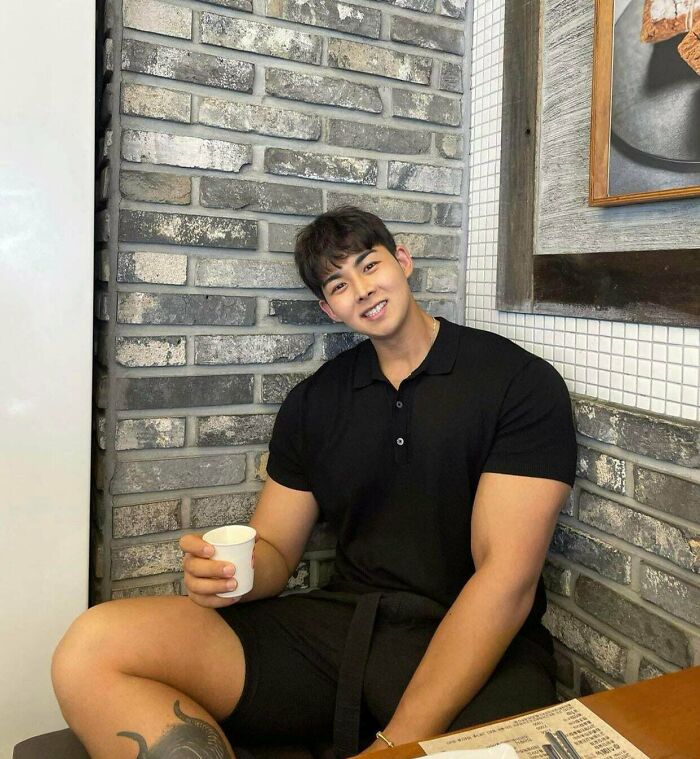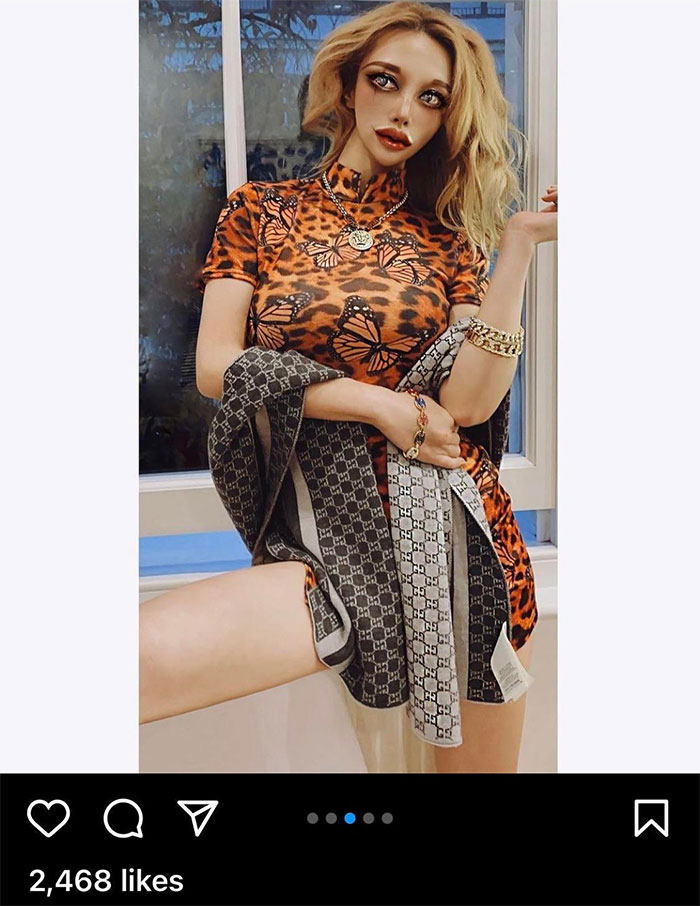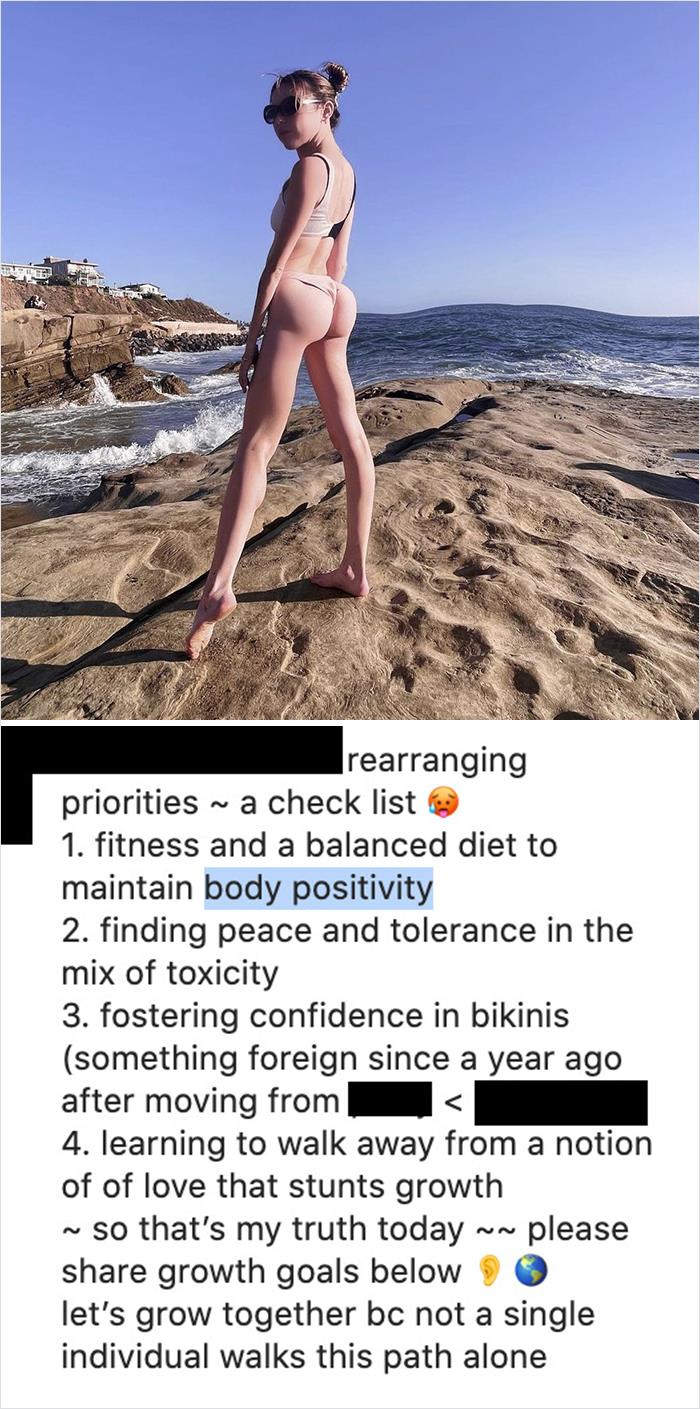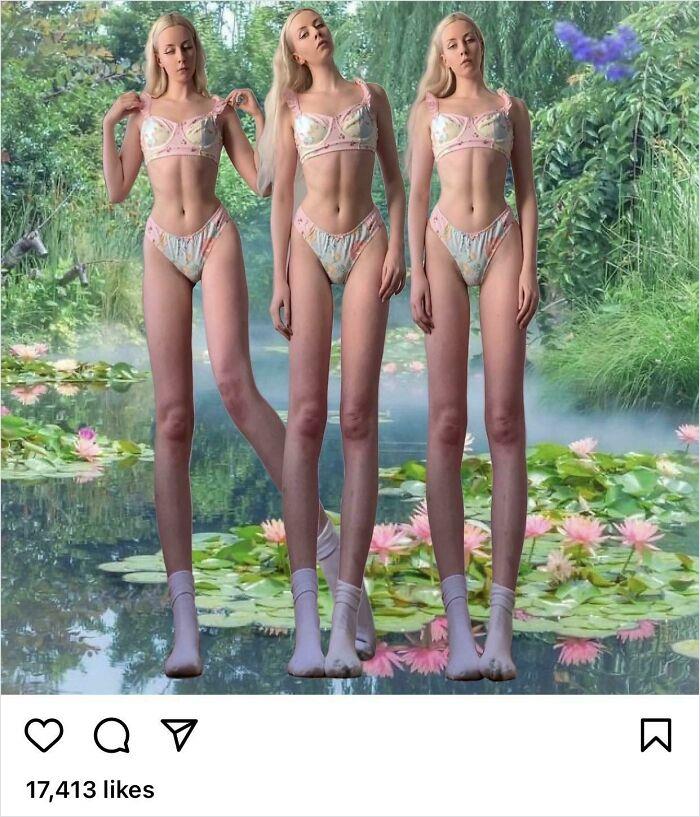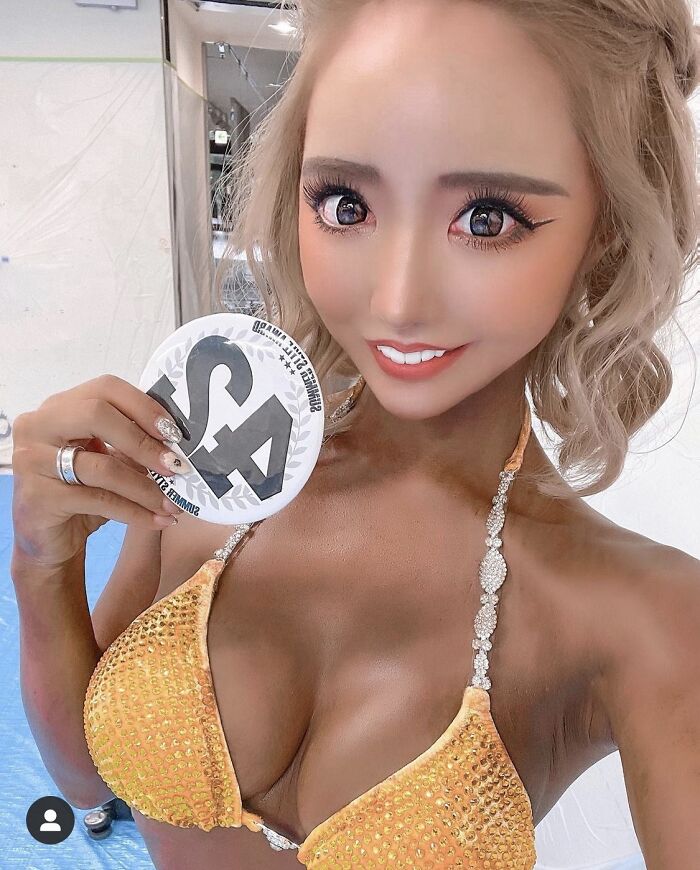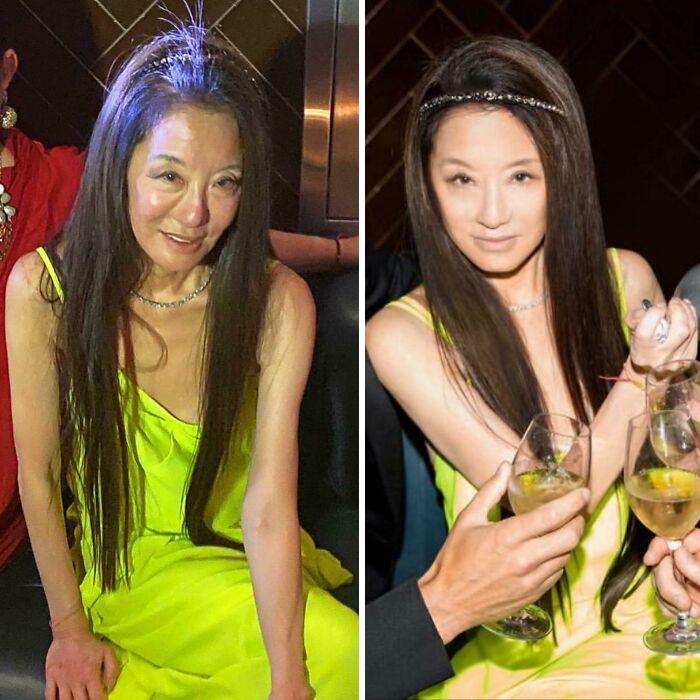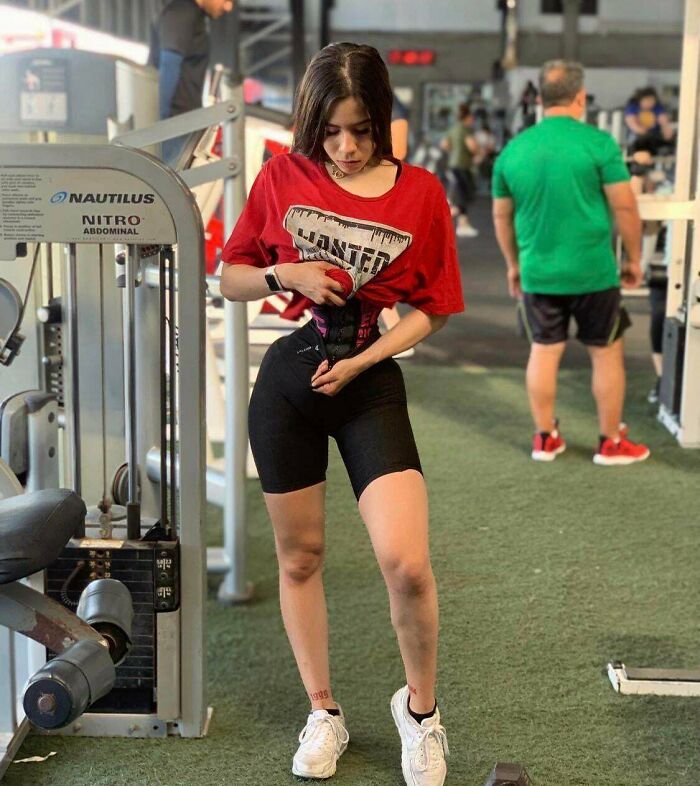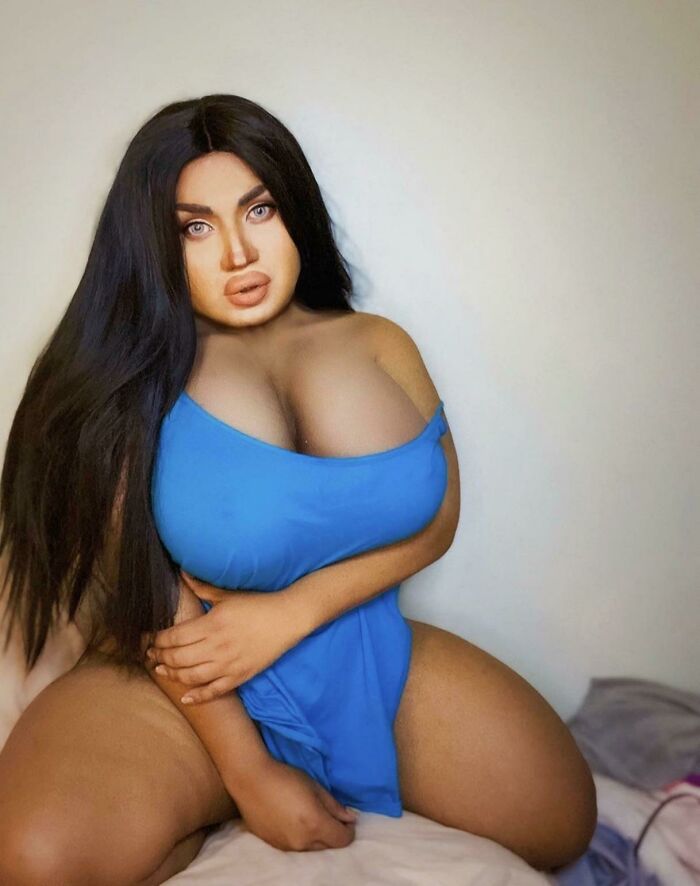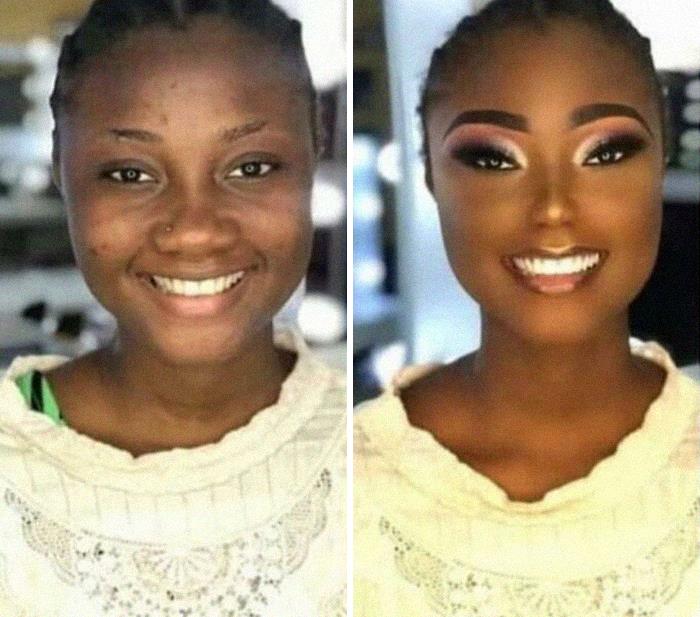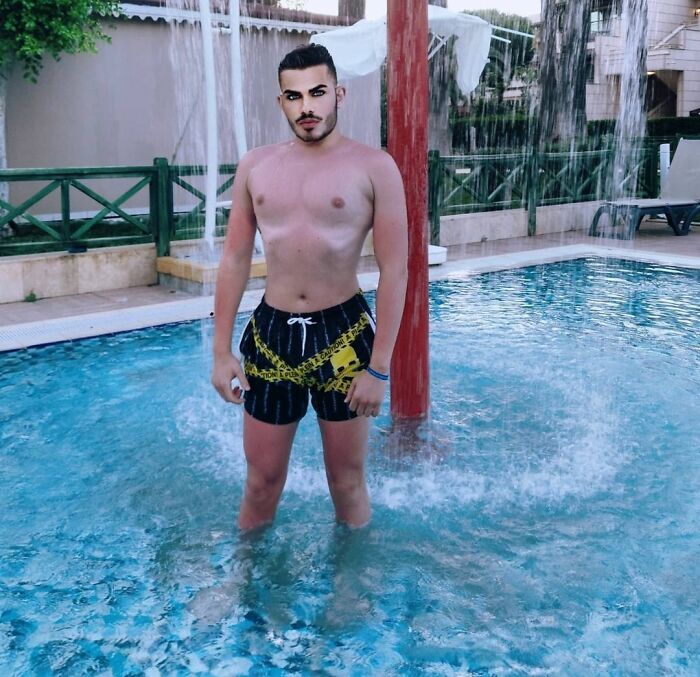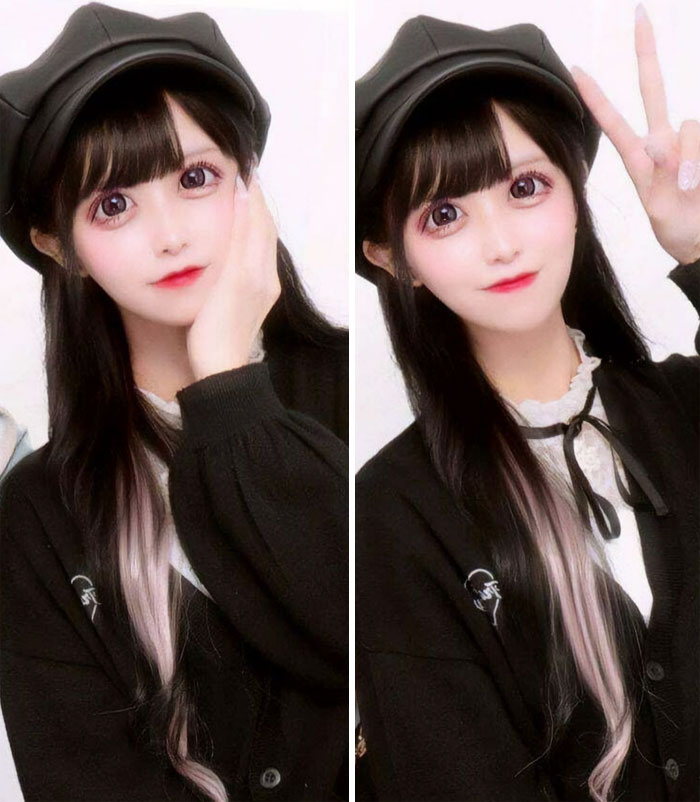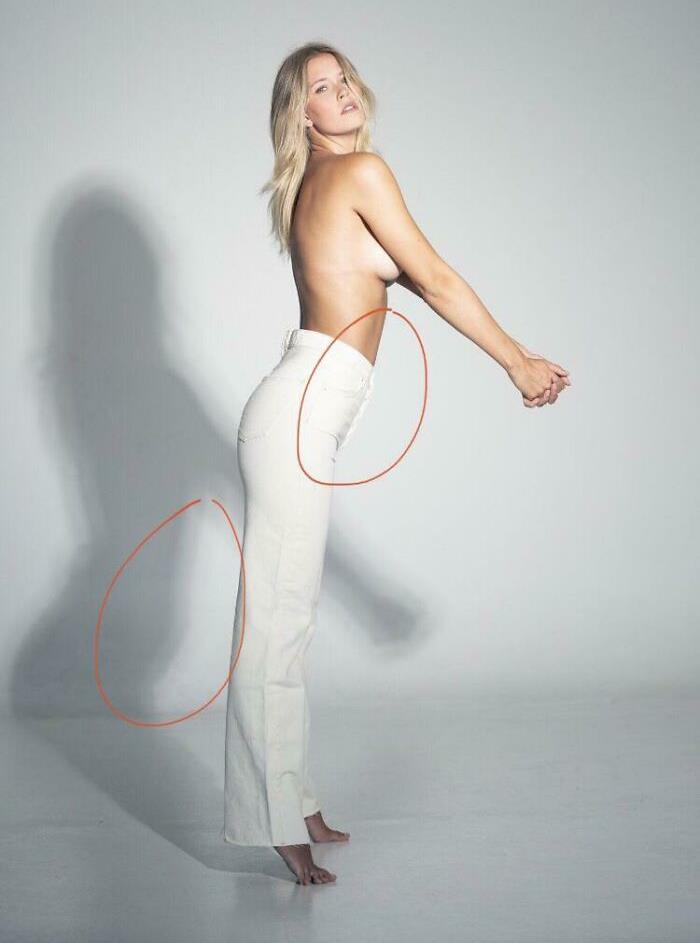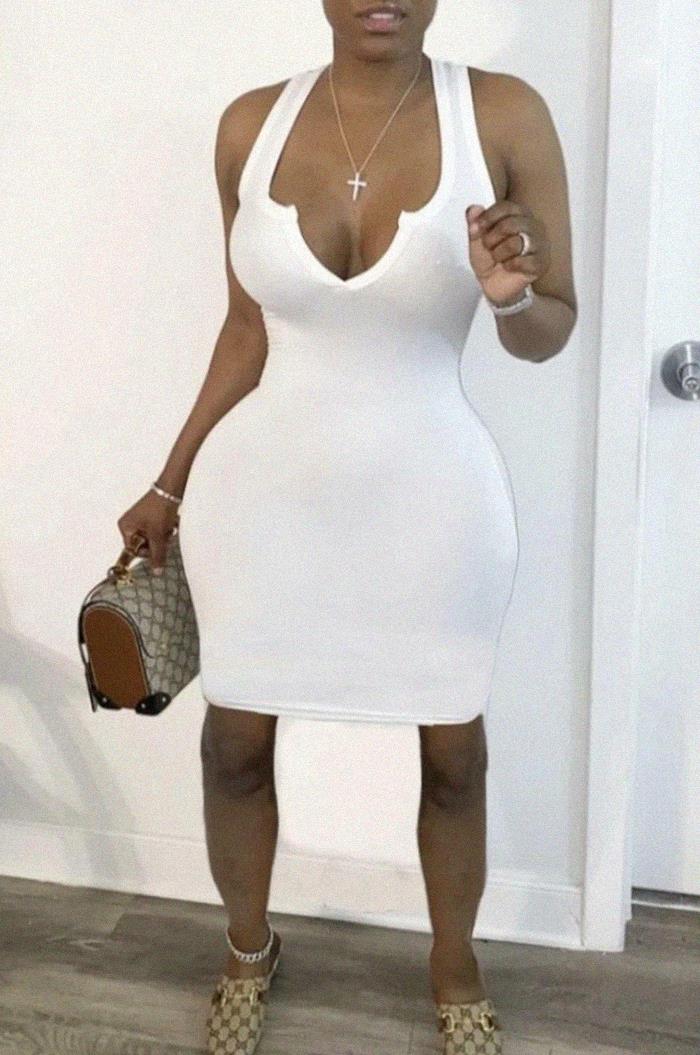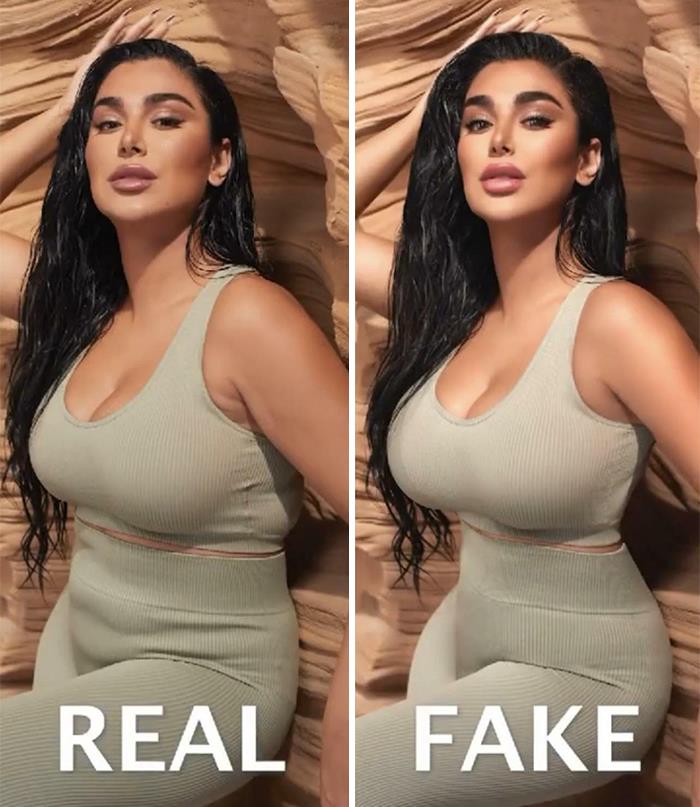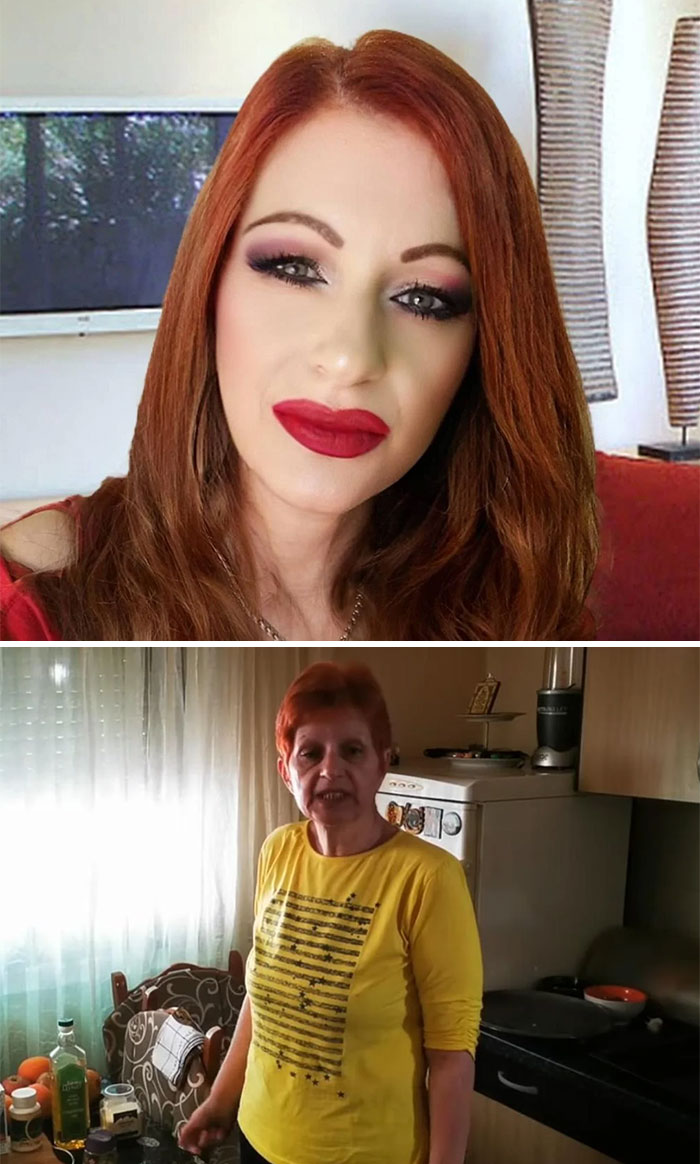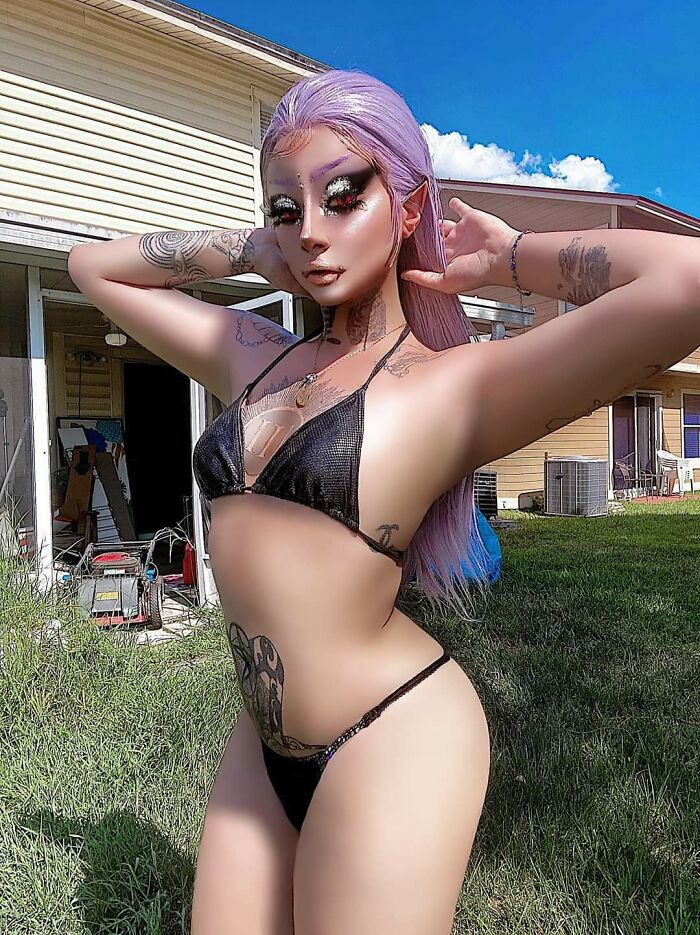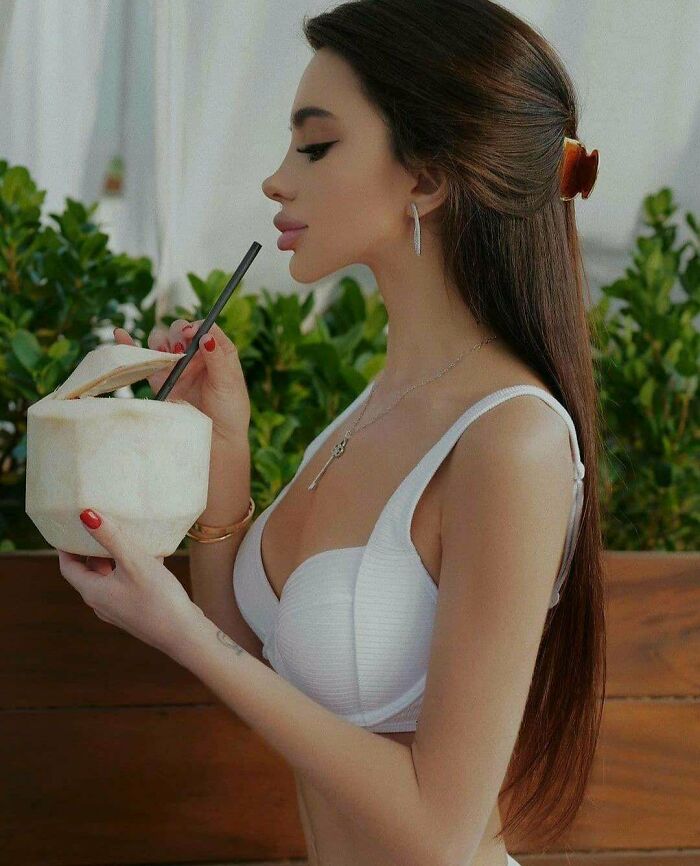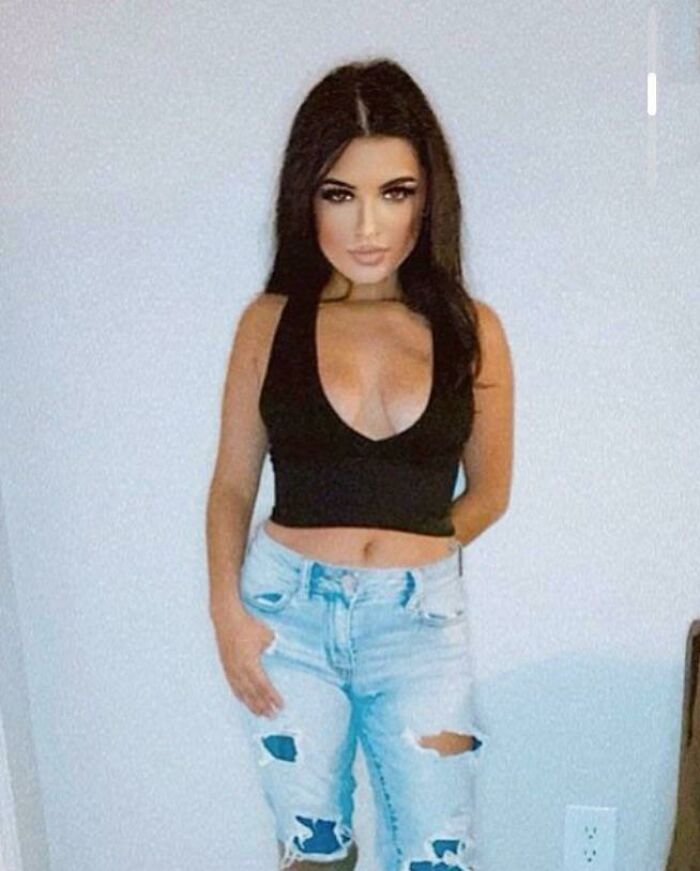The rise of selfie culture has changed the ways we perceive beauty beyond recognition. It has blurred the lines of what’s real and fake, of what’s natural and purely fictional. When heavy photo editing and filters came to social media, at first, everyone was just messing around.
Now, kids as young as ten are airbrushing their selfies with ready-made augmented-reality face filters that often sharpen, shrink, and enhance their faces and bodies. But the result is often anything but pretty. And now, many social media influencers are being busted for using these filters to alter their identities and create fake personalities.
It’s no secret that some go as far as pushing this fakery to its very limits, and this is where the community r/InstagramReality steps in. “It’s unbelievable how some people get away with it while others don’t!” the subreddit writes on its page.
Let’s see some of the worst offenders below, and after you’re done scrolling, make sure to check our previous posts on Insta vs Reality here, here and here.
#1
This Model Makes Herself Look Easily 25 Years Younger And It’s Crazy
Final score:
#2
You Can Barely See Her Nose
Final score:
#3
Will Never Understand The Appeal Of Little Head Syndrome
Final score:
Bored Panda reached out to Erin Alyssa Vogel, a social psychologist and senior research associate at the University of Southern California. Her researches involve adolescent e-cigarette use, social media and digital health, and tobacco use disparities in the LGBTQ+ community.
“Influencers are under a lot of pressure to make themselves and their lives look perfect. Most people who use social media try to portray themselves in a positive light, by posting about good things that happen to them and posting their favorite photos of themselves,” Erin explained.
However, for influencers, the pressure to look perfect is even more pronounced, she said. “Their appearance is part of their brand. Face tunes and filters can help them achieve the perfect look. I wouldn’t say face tunes and filters are ‘addictive,’ per se.”
“But when people get used to seeing only filtered photos of themselves, they may start to really dislike their natural appearance, and continue to use filters,” she added.
#4
He Has One Sky That Follows Him Around Everywhere He Goes. Amazing How Its So Consistent!
Final score:
#5
My Friend Met This Girl And She Looks Nothing Like This
Final score:
#6
Body Positivity So Strong It Caused A Tsunami
Final score:
It’s no secret that the addictive face filters, heavy photo editing and other appearance enhancements that are so popular these days on social media often do more harm than good. “Filters help create and enforce unrealistic beauty standards,” Erin stated and added that “For many years, we’ve been exposed to airbrushed and highly edited photos of models and celebrities.”
“Now, with social media, we see filtered photos of our peers too. It’s easy to forget that the other person’s appearance is not actually flawless. We may compare our real appearance to other people’s filtered appearances and feel worse about ourselves as a result. Also, if we only see filtered photos of ourselves, our natural appearance in photos may start to look strange and wrong to us.”
#7
What She Posts vs. A Screenshot I Took From A Video
Final score:
#8
She Can Touch The Sky With Those Legs
Final score:
#9
Hi Humans
Final score:
We also spoke to Helen Egger MD, a child psychiatrist and co-founder and Chief Medical and Chief Scientific Officer of Little Otter. “We’ve always had the challenge of images being filtered and doctored to make unrealistic measures for what beauty looks like,” she said. But filters on social media take it to the next level, “because it’s not just seeing an image of a celebrity who is unrealistic and measuring yourself against that person, it’s measuring your real self against a pretend image of yourself.”
According to Helen, “Edited images receive positive reinforcement from likes and comments, which serve as a dopamine hit. You like the feeling and want to do it again, which feeds on itself.” Meanwhile, “Face filters use algorithms to reinforce a certain standard of beauty that is very narrow. It doesn’t support individuality, it supports conformity with what’s the standard of beauty, which is worrisome.”
“In some cases, this can turn into body dysmorphic disorder, in which you are convinced some aspect of your body isn’t good enough. It becomes a fixation, an obsessive worry that often leads to anxiety, social isolation, eating disorders and seeking out cosmetic surgery,” the child psychiatrist concluded.
#10
Tagged vs. Posted. She Actually Looks Really Good For 72 Y/O But Can’t Help Herself With The Photoshop
Final score:
#11
Intestines ? Never Heard Of Them
Final score
#12
Saw This A While Back… Thought I’d Post It Here
Final score:
#13
Makeup Is Truly Amazing. It’s The Nose For Me
Final score:
#14
It’s Like A Mask
Final score:
#15
Don’t Understand How Someone Can See This As Anything But Straight Up Scary
Final score:
#16
When Your Shadow Looks More Realistic Than You. Seriously, Bellies Don’t Need To Be Fixed
Final score:
#17
Came Across On Pinterest. It’s On A Clothing Website. When Your Arms Are Bigger Than Your Legs
Final score:
#18
Iger Compares Editing Before And After
Final score:
#19
Claims It’s All Makeup And Expensive Wigs
Final score:
#21
What Am I Even Looking At
Final score:
#22
This Side Profile Is…
Final score:
#23
Found One On A Dating App…
Final score:
#24
Does Anybody Else See The Purple-Ish Rectangle Around Her Head In Both Pictures? Also, The Proportions Just Seem Off
Final score:
#25
I Don’t Think This One Needs Explaining

